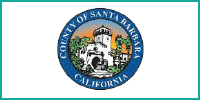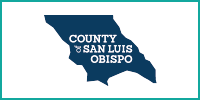The Foundation expects to award 50 scholarships of up to $5000 and 50 honorable mentions to sophomore and junior level college students committed to careers related to the environment, tribal public policy, or Native American health care.
Scholarships are offered in any of three categories:
-
To students who have demonstrated commitment to careers related to the environment including policy, engineering, science, education, urban planning and renewal, business, health, justice, economics, and other related fields; or
-
To Native American and Alaska Native students who have demonstrated commitment to careers related to tribal public policy, including fields related to tribal sovereignty, tribal governance, tribal law, Native American education, Native American justice, natural resource management, cultural preservation and revitalization, Native American economic development, and other areas affecting Native American communities; or
-
To Native American and Alaska Native students who have demonstrated commitment to careers related to Native health care, including health care administration, social work, medicine, dentistry, counseling, and research into health conditions affecting Native American communities, and other related fields
Who Can Apply?
-
To be eligible, students must meet all of the following criteria:
- Be committed to a career related to the environment, OR committed to a career in tribal public policy OR Native American health care.
- Only Native Americans and Alaska Natives are eligible to apply in tribal public policy or Native American health care.*
- Native American students studying tribal public policy or native health do not need to demonstrate commitment to the environment.
- Likewise, students pursuing environmentally related careers do not need to be Native American, nor do they need to demonstrate commitment to tribal public policy or Native health.
- Be a sophomore or junior-level student, enrolled full-time at a two-year or four-year accredited institution of higher education in the United States, pursuing a bachelor's or associate's degree during the 2013-2014 academic year.
- "Sophomore" is defined as a student who has completed at least one year of full-time undergraduate study and intends at least two more years of full-time undergraduate study beginning in fall 2014.
- "Junior" is defined as a student who intends at least one more year of full-time undergraduate study beginning in fall 2014.
- Students may apply for funding in both their sophomore and junior years; 3rd time applicants, however, will not be eligible.
Meet the following requirements:
- Have a college grade-point average of at least a "B" or the equivalent.
- Be pursuing full-time study during the 2014-2015 academic year.
- Be a U.S. citizen, U.S. national, or U.S. permanent resident.
- Native American and Alaska Native students in tribal public policy or health care must submit copies of relevant enrollment forms or descent documentation (for more information, see our Frequently Asked Questions). Members of the First Nations of Canada must submit proof of U.S. permanent residency. U.S. permanent residents must submit a copy of their permanent resident ("green") card and a letter of intent to declare U.S. citizenship (First Nations are excepted).
*For the purposes of the Scholarship Program, a Native American or Alaska Native is any individual who is:
- A member of an Indian tribe or band, as membership is defined by the tribe or band, including any tribe or band terminated since 1940 and any tribe recognized by the state in which the tribe or band resides;
- A descendant in first or second degree of a member of an Indian tribe or band, as membership is defined by the tribe or band, who can demonstrate affiliation with the tribal community according to criteria set by the Foundation;
- Considered by the Secretary of the Interior to be an Indian for any purpose;
- An Eskimo, Aleut, or other Alaska Native;
- A permanent U.S. resident who is a member of the First Nations of Canada.




